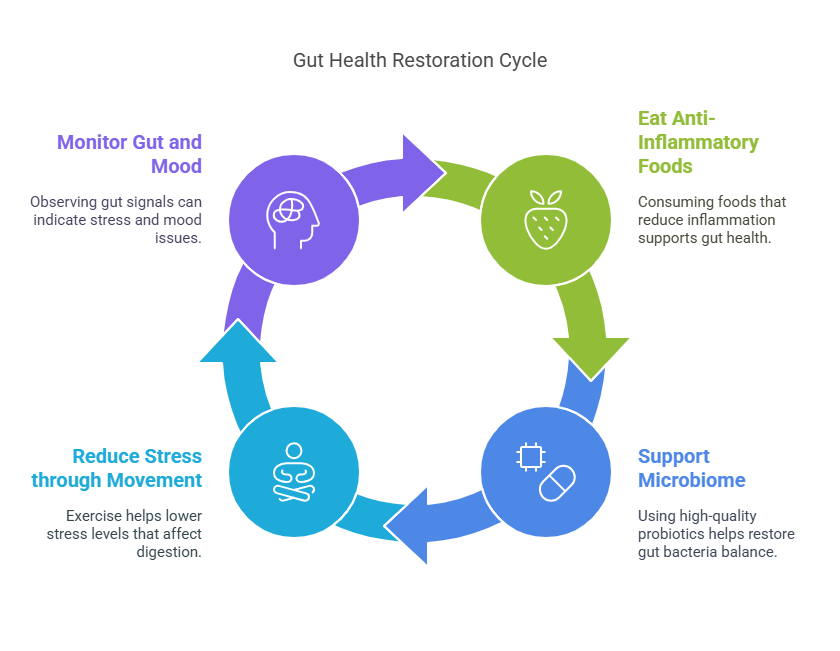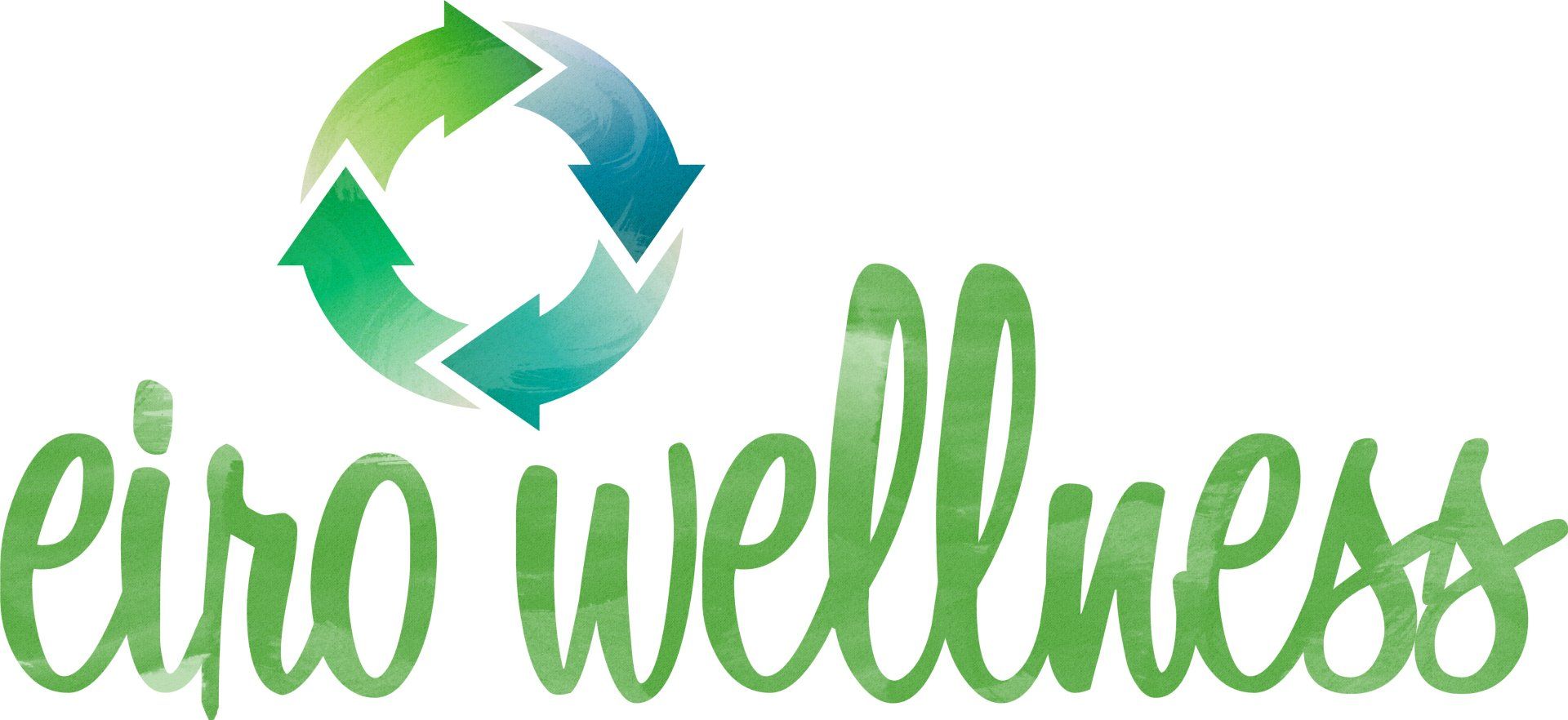How Gut Health Impacts Mood
Three ways to support your gut health for a happier, calmer you.
My mind is racing as I sit here writing this. There’s a never-ending to-do list, and so much still undone. With a big event coming up this weekend and smaller ones next week, my thoughts jump ahead to all that needs to be done. Lately, I’ve been in a season of extra busyness, and staying calm and present has been a challenge.
Sometimes, I don’t even realize how fast my mind is spinning until my stomach starts to churn. The tension builds, a subtle warning that I’m allowing stress to take control. When I notice this, I take a moment to ground myself in the present. I lace my fingers together and spend a few minutes tapping on my chest. Slowly, I feel my stomach relax as my body shifts back into balance.
The Gut-Brain Connection: Understanding the Relationship
Did you know your gut has its own nervous system?
The enteric nervous system, located entirely in the gut, plays a major role in communication between the gut and brain. This superhighway of information runs through the vagus nerve, which carries messages back and forth. Neurotransmitters like serotonin and dopamine are key players in this communication.
Many people assume that serotonin—the “feel-good” chemical—is mostly produced in the brain. But here’s something surprising: Up to 90% of serotonin is actually made in the gut! That’s why when someone says, “I have a gut feeling,” they’re onto something. Our gut often senses and responds to emotions before our brain even registers them. This explains why stress or anxiety can lead to an upset stomach and why supporting gut health is essential for emotional well-being.
When there’s an overgrowth of harmful bacteria in the gut, it disrupts the delicate microbiome responsible for producing serotonin and dopamine. A healthy microbiome consists of good bacteria that help break down food, absorb nutrients, and support overall well-being. But when bad bacteria take over, they interfere with these essential functions, affecting both digestion and mood. This is why gut cleansing and microbiome support are crucial for emotional balance.
Stress, Overwhelm, and Gut Health
Stress triggers the release of cortisol, the body’s “fight or flight” hormone. In a crisis, cortisol helps us survive by redirecting energy to essential functions like muscle movement and brain activity. However, chronic stress keeps cortisol levels high, disrupting digestion, slowing nutrient absorption, and causing gut muscles to tense up. This can lead to bloating, cramping, constipation, or diarrhea while also throwing off the balance of good bacteria.
As stress and gut imbalance continue, inflammation can set in, further reducing serotonin and dopamine production. This can make feelings of anxiety and depression more pronounced. Adding to the problem, stress often leads to cravings for processed, sugary foods. While sugar provides a temporary dopamine boost, it ultimately depletes essential B vitamins needed for stress management, leaving us feeling even more drained.
Naturopathic Approaches to Gut and Emotional Health
The key to restoring gut balance is reducing inflammation and supporting beneficial bacteria. Here’s how:
- Eat anti-inflammatory foods: Focus on fresh fruits and vegetables, grass-fed meats, and healthy fats like olive, coconut, and avocado oils.
- Support your microbiome: Choose a high-quality probiotic that can survive stomach acid and reach the gut, where it can restore balance. Many probiotics are too fragile or not potent enough to be effective, so look for one known for its quality and variety of strains.
- Reduce stress through movement: Exercise—whether it’s gentle stretching, somatic exercises, or cardiovascular movement—helps regulate cortisol and reduce its impact on digestion.
We can’t live in a bubble, free from stress and digestive challenges. But our bodies are beautifully designed to communicate with us. When you feel tension in your gut, consider what’s causing tension in your life. If irritability is rising, check in with your digestion. If your mood is low and anxiety is high, look to your gut health.

One simple way to support digestion and mood is to activate the vagus nerve before meals. Just a few minutes of vagus nerve exercises—such as eye movements or ear massage—can help send calming signals between the gut and brain. If you’re curious, there are plenty of great tutorials on YouTube to guide you through it. It may sound a little different but give it a try—you may be surprised at how much better you feel!
Taking the time to care for our gut health is not just about digestion; it’s about supporting our emotional well-being as well. The mind and body are deeply connected, and when we nurture one, we nurture the other. By listening to the subtle signals our bodies send, such as tension or discomfort, we can better understand how stress is impacting us. With the right tools and practices, we can manage both our physical and emotional health. Remember, your gut is not just your digestive system—it’s a powerful communicator with the rest of your body, and it’s worth paying attention to.









